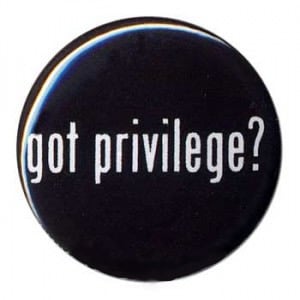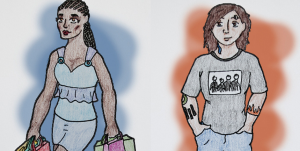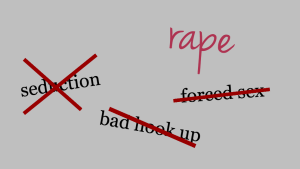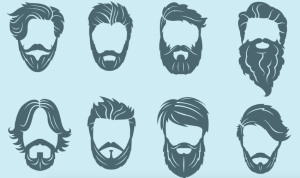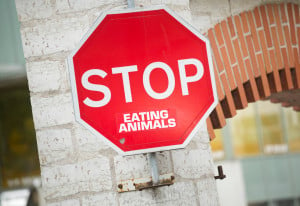
Source: iStock
Growing up Kanaka Maoli, there was always a part of me that understood that my relatives did not just include people. The honu (green sea turtle), mano (shark), and pu’eo (owl) were my relatives too, and they were deserving of respect and care just like their human counterparts.
Based off of that, it might be easy to assume that I wholeheartedly support the animal rights movement, along with vegan and vegetarian diets.
And you know what? I do support accountability for how our actions harm animals, and I am completely on board with people making changes to their diet and lifestyle that are in line with their values and physical needs.
But what I’m not down for is the rampant racism, sexism, ableism, and colonialism that dominate the mainstream animal rights, vegan, and vegetarian spheres.
If you’re thinking of becoming or are currently vegan or vegetarian — or if you’re invested in the animal rights movement — reflecting on the language, behaviors, and attitudes currently attached to the movement with an intersectional perspective is vital.
If we don’t, we end up with organizing that equates women of color to exotic animals, sexualizes violence against women, body shames women, and so much more.
That’s what I want to talk about today: how white supremacy and oppression manifest themselves in mainstream animal rights organizing/ideologies — and what we can all do to challenge that.
To be clear, I’m not saying that everyone who is vegan, vegetarian, or involved in the animal rights movement is an oppressive asshole perpetuating colonial and white supremacist beliefs and behaviors.
There are a number of fabulous people out there — particularly those frequently invisiblized people of color who are doing incredible anti-oppressive work around animal rights, veganism, and vegetarianism in their communities (see just a few of them here, here, and here!).
The thing is, those people and the work they are doing is not what most people think of when they think of veganism, vegetarianism, and animal rights.
If I were to ask 20 random people to name one organization that supports animal rights and going vegan, the most common answer would likely be PETA (People for the Ethical Treatment of Animals).
That’s what I’m talking about when I talk about mainstream organizations — the places and people who have millions of dollars in funding, celebrity endorsements, splashy billboards and media spots, and name recognition in the general public.
And it’s these mainstream groups that are often the biggest culprits of perpetuating oppression.
Just to give you a brief idea of what I mean, PETA has run ads that are fatphobic, classist, compare the murder of sex workers to pig farming, compare eating meat to lynching, exotify women of color, and compare factory farming to the Nazi Holocaust, among other examples.
If we are committed to ending oppression in all its forms, we must be willing to critique our movements and then push for change to make them better.
So, without further ado, here are 5 ways that the mainstream animal rights movement and veg(etari)anism perpetuate oppression and what you can do about it.
1. The Mainstream Animal Rights Movement Values Animal Life More than the Lives of Marginalized People
There are countless examples out there of times when folks have been more concerned about animals suffering than people.
Television hosts cry over Cecil the lion being shot, but no tears are shed for all of the Black and Brown folks being murdered and experiencing violence every day. PETA sends rescuers to save animals during Hurricane Katrina, but offers no assistance to the thousands of people (mostly people of color) who are stranded.
There was a video released recently of a kanaka maoli man approaching an ilio holo i ka uaua (Hawaiian monk seal) in order to do a healing ceremony nearby.
A few bystanders called the police because they felt he was bothering the seal, and after the police arrived the man stood to leave. As he was attempting to leave the police officer pepper sprayed him and then beat him with his baton, breaking several bones in the process.
Throughout all of this, the people who called the cops are still recording what’s going on, and you can hear a woman crying. She says, “I was so scared he was going to hurt her [the seal],” and the man filming says, “Don’t cry, I know that, I got him on film.”
A Native man has just been beaten for practicing his traditional spirituality, and the two people are crying and comforting each other over how the seal is okay, and the Native man can’t hurt it any more.
You could maybe write it off as someone responding poorly in the face of seeing someone be brutalized by the police, but if you take the time to look at the comments on any of the articles about the incident, you’ll find wave after wave of people talking about how the seal’s rights were being violated, how the seal needed to be protected, and how it is the kanaka maoli man’s own fault for not being respectful of the seal.
The opinion that the seal’s rights were more important than the right of the kanaka maoli man to not be assaulted by police is shared with righteous anger, and that’s a huge issue.
I could go on for ages about all the problems with this specific incident and the countless others like it, but what it boils down to is this: it is not okay to prioritize or value the lives of animals more than the lives of people.
It’s not okay to use the protection of animals as a validation for the perpetuation of state violence on marginalized bodies or the continued colonization of cultural heritages we’re struggling to sustain.
Being able to empathize and fear for a seal and not for the Native man being beaten, or the Black man being shot, is a symptom of white supremacy and colonization.
The intentional and systematic de-valuing of the lives of Indigenous folks and people of color has been happening for hundreds of years, and it culminates in a society where animals are seen as innocent victims of violence who deserve protection and safety while a 12 year old Black boy is viewed as inherently dangerous and deserving of violence.
When I talked at the beginning of this article about animals being relatives and deserving of the same care and respect as humans, it is key to recognize that there is an inherent balance there. It is not saying, “Animals are the only ones who matter and we must protect them first at all costs regardless of the context.”
Rather, it is a call to afford all of our relatives, both animal and human, the love and support they all intrinsically deserve.
Thus, if you are really striving for balance in this world, you must react with the same outrage to incidents of violence and oppression against marginalized folks as you do to an animal being abused.
If you only respond to harm done to animals and not the harm being done to people – especially marginalized folks — you are buying into white supremacy and colonization.
If you truly want to end oppression, in all its forms, you need to check yourself (and the people around you) to make sure you aren’t unintentionally replicating oppressive beliefs and behaviors.
2. Classism Can Be a Huge Barrier to Being Able to Get Involved
There are two parts to this. The one I hear talked about most often is folks who are poor not having the economic means to afford a vegan diet.
This might be due to any combination of factors, ranging from food deserts to increased mainstream (read: White) use of foods like quinoa or soy, thus driving demand and therefore prices sky-high.
Be mindful that, while finding vegan or vegetarian options might be as simple as walking to your local co-op for you, for many people it is simply not an affordable option.
On top of the expenses that may be associated with obtaining the ingredients themselves, there is also a cost associated with the preparation and storage.
For example, to make a meal I might need an hour of prep and cooking time, along with several pots, pans, cooking utensils, oils, and spices.
And once I make the meal, if I’m trying to save leftovers or make my lunch for the next day I better have a fridge… which requires living space, money to get the fridge in the first place, and electricity. I also need to have something to store it in, which is an additional expense.
To finish it all off, I then need to have time to clean everything up in preparation for doing it all over again.
That’s a ton of time, money, and resources when taken cumulatively, and for folks who have kids, are working multiple jobs, have a disability, or don’t have access to resources in the first place sometimes it’s just not possible to do it all.
Simply saying, “It’s really not that difficult to switch to a vegan lifestyle, you just have to try!” doesn’t magically erase all of the systemic barriers that might prohibit someone from being vegan or vegetarian.
Assuming that everyone has access to the resources and support system needed to become vegan erases the lived realities of many marginalized folks and plays right into the oppressive trope that anyone can pull themselves up by their bootstraps.
Instead of ignoring the fact that systematic oppression prohibits some people from being able to be vegan or shaming folks who are unable to be vegan for whatever reason, think about what it would take to change those systems and create support systems for your community.
Could you and other community members facilitate vegan cooking classes? Set up a schedule to help folks prepare meals? What would it take to mobilize the community and ensure affordable access to fresh produce in the neighborhood?
Those are the questions we should ask ourselves if we are really interested in fostering well-being in our communities for everyone, vegan or not.
3. When Mainstream Vegan Feminists Talk About Animal Rights, They Are Super Trans-Exclusionary
I’ve seen a lot of adverts and signs over the years declaring that being vegan is feminist, and that the animal industry is built on the exploitation of the “female reproductive system” — thereby making it an issue that all women should resonate with.
The problem is that defining what it means to be female as having a uterus, ovaries, vagina, and mammary glands completely erases trans women, trans men, non-binary folks, and anyone whose body doesn’t conform to that super essentialized (and incorrect) definition.
By rooting their analysis of animal rights in this archaic definition of gender, mainstream vegan feminists ignore and exclude the lives of trans folks.
If you want to be a vegan feminist, great! But there’s no need to resort to inaccurate and harmful tropes about biology and reproductive organs to make a point.
4. Mainstream Veganism and the Animal Rights Movement Are a Form of Colonization
Okay, let’s be blunt: veganism, vegetarianism, and the animal rights movement are only necessary to begin with because of colonization.
Animal rights and treatment weren’t a concern pre-contact/pre-westernization/pre-industrialization because animals were viewed as relatives, not commodities.
Many tribes have stories about how they came to eat fish, deer, and other meats, and the central theme in the stories I have heard is love. Love for each other as relatives, and a genuine investment in each other’s well-being.
Now that animal rights are a concern due to colonization, being vegan or vegetarian is one of the easiest ways for people to create tangible change in their own lives.
However, there’s a certain rhetoric I’ve heard from mainstream vegan and vegetarian folks that says if you are truly concerned with ending oppression, you will adopt a vegan or vegetarian lifestyle.
Taken in the context of traditional lifeways for Native people, this kind of statement becomes just another form of colonization.
Many of the foods that we ate in my community, for example, were based around subsistence fishing. We’ve had to fight to keep our traditional foods, which have historically been labeled as strange or uncivilized, and becoming vegan or vegetarian now would require giving up those same foods.
I will never forget being at a family gathering and my uncles bringing in fish and octopus they had caught and everyone gathering around to eat together – except for me.
Not only was it isolating for me, but several family members took my refusal to eat as a rejection of part of our culture.
In hindsight I imagine it must have been incredibly painful for my tutu, who was old enough to remember a time when eating raw octopus would have been ridiculed, to watch as I declined to share in a piece of our way of life people like her had fought so hard to sustain.
If the mainstream vegan/vegetarian movement had its way, I would view my people’s traditions as inherently oppressive and inferior simply because we eat meat, and that is not okay.
The issue is doubly important for all of the tribes and communities that still rely on subsistence hunting and fishing to survive.
If anyone remembers Ellen DeGeneres and her ultimate selfie at the 2014 Oscars, there’s a part of the story you might have missed. Ellen decided to donate part of the money the selfie raised to the Humane Society, which has a history of actively condemning and campaigning against seal hunting.
For many Alaska Natives and Inuit communities in Canada seal hunting remains one of their primary sources of food and fur for clothing and shelter. A 17-year-old from Iqualuit started a “#sealfie” campaign to draw attention to the issue with animal rights orgs making sweeping condemnations of seal hunting, and to try to educate Ellen and the general public on the realities of subsistence hunting.
Now, I want to be very clear that there are Indigenous folks who are vegan, for a variety of reasons, and I support them wholeheartedly. Being vegan or vegetarian can be an awesome political act and form of decolonization for some, and that’s great!
The issue here is that the mainstream animal rights and vegan/vegetarian movements set arbitrary requirements for what it means to work towards eliminating oppression without bothering to take into account historical and cultural factors.
It’s fine if you have your own beliefs — just be aware of the historical and cultural context that you exist within, and recognize that if you are not checking yourself, your anti-oppression efforts might end up causing harm to those with different identities than your own.
***
The mainstream animal rights, vegan, and vegetarian movements are unfortunately responsible for perpetuating numerous forms of oppression.
The good news, though, is that you can be invested in animal rights or be veg(etari)an and choose not to be complicit or support organizations that uphold systems of power!
Be diligent in checking out the organizations that you affiliate yourself with, and don’t be afraid to have these kinds of conversations with the people around you.
Perhaps most importantly, tune in if folks from marginalized groups are telling you that what you’re doing is harmful and needs to change.
We cannot dismantle one form of oppression while upholding others, and we need to hold ourselves accountable to doing better.
[do_widget id=’text-101′]
Mahealani Joy is a Contributing Writer for Everyday Feminism and kanaka maoli queer woman currently living in the Midwest. They are involved in organizing to end sexual violence against Native women and finding ways to strengthen Indigenous communities.
Search our 3000+ articles!
Read our articles about:
Our online racial justice training
Used by hundreds of universities, non-profits, and businesses.
Click to learn more





